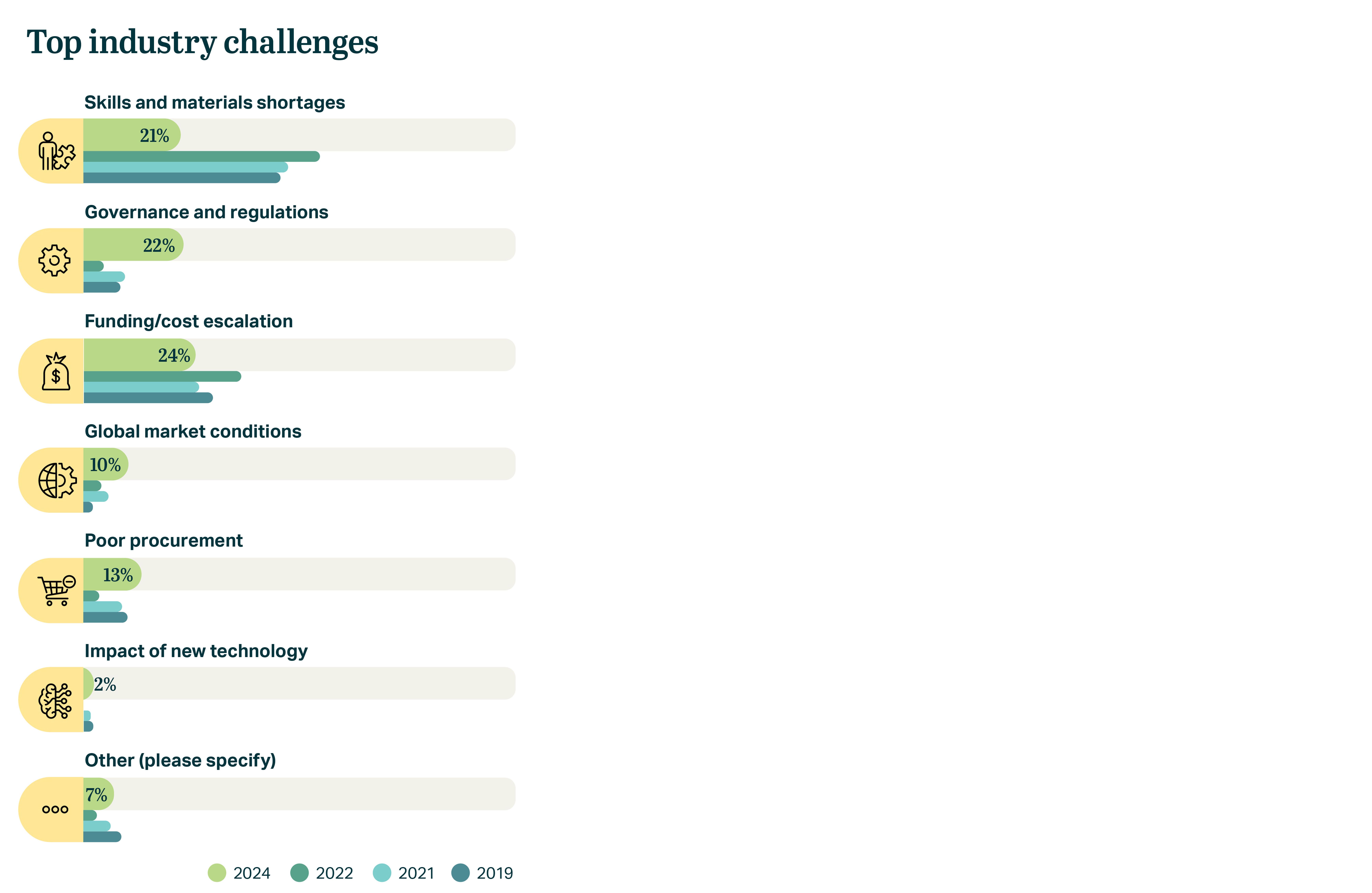New Zealand's infrastructure, construction and energy sectors, as well as local councils, are grappling with a range of ongoing challenges. These include a persistent shortage of skilled workers, rising costs driven by inflation and material shortages, and regulatory uncertainties, particularly in relation to government-funded projects.
Top industry challenges
Governance and regulatory concerns, poor procurement, and global market conditions have become more pronounced in recent years. Key challenges include funding issues, uncertainty in project pipelines, political pressure to fast-track projects without adequate planning, insufficient consultation, workforce constraints, shifting government priorities, and a limited pool of contractors. Political conflicts further compound these issues.
Global market conditions—particularly inflation and material cost fluctuations—remain significant concerns, as do inefficiencies in procurement processes.

Potential solutions
Despite these challenges, there are opportunities for growth within New Zealand's infrastructure and construction sectors. The sector has made strides in adapting to global supply chain disruptions and inflation by diversifying supply chains, innovating materials, and improving cost management practices. Procurement processes are evolving toward greater efficiency and transparency, with a focus on long-term value. However, a shift toward pricing-focused models, seen in government procurement like the Ministry of Education's approach, highlights the tension between financial considerations and delivering lasting value. A more strategic, collaborative procurement model is needed, encouraging competition and fostering stronger public-private partnerships to reduce inefficiencies and promote innovation.